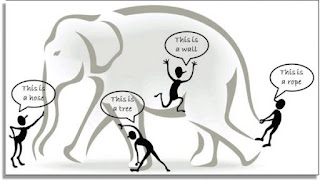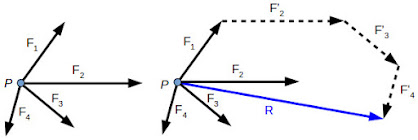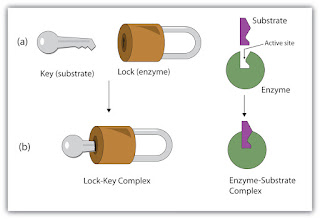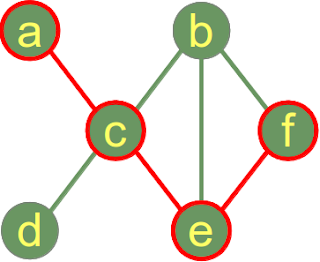While watching and recommending to others Dr. Bruce Lipton's video lecture on "Biology of Belief", a thought came to my mind. I was thinking about the quality of information/ knowledge/ wisdom we acquire. Watching this 2 hours plus video lecture makes me feel quite knowledgeable and aware of the topic. But coming to think of it, I have chosen a source which is already two levels degraded atleast. The best or ideal way would be to put in the 20 -25 odd years that Dr. Bruce Lipton would have put in to come to the conclusions presented in the video. That would probably give us the experiential understanding of the subject that the author has. We do not do that, obviously.
Then that knowledge gets degraded one level when he writes a book on that topic. I say degraded because there will be addition of some variables like the use of language which requires interpretation at 2 levels - first from the writer's experience or the concept in his head to being translated into words. The second level is reading and comprehension by the reader. So again a 100% transfer is seldom the case. But we don't read that book either.
He further distills that knowledge into a 2 hour odd video lecture which is another level of degradation. Now as a individual watching that video we can add atleast 2 more variables - one for our concentration or undivided attention through the course of the video and second for communication issues. In an ideal situation these would have a value of 1 i.e. it would not attenuate the knowledge being conveyed. It can be expressed in form of an equation
Ic x A x C = Ia
Ic = Information contained Ia = Information acquired
A= Attention C = Communication efficiency
But we know from personal experience that this is not true. These variables (A and C from above equation) are invariably fractions reducing the amount of knowledge acquired. So even watching a 2 hrs of video lecture will give me a very small amount of knowledge transfer.
Now to put things in perspective, we acquire a lot of what we think of as "knowledge or information based opinion on topics" by watching 5-10 minutes of video, reading a few articles or WhatsApp forwards or listening to a friend who has seen that video or read that article. We can very well assess the frailty of the knowledge gathered from these sources. This is when we have not included variables like the content creator himself being a secondary source of the knowledge, the creator having vested interests or ideologies etc.
We are often guided in life by these "knowledge or information based opinion on topics". Without realizing the frailty of our knowledge, we base our opinions on it. Then we go on to build magnificent edifices on this shaky foundation. Then we cling onto our opinions as if they are universal truths and are ready to go to war with others with any kind of opposing opinion.
This is part of basic human nature because we do not have the time, inclination or frankly a valid reason to invest in researching every topic. Now-a-days everyone feels a need to have an opinion on everything and is expected to air it publicly too. Whether they have any kind of expertise or first hand knowledge on the topic is considered an unimportant detail.
But given that this is human nature and as humans we will not be able to eradicate this frailty of our knowledge, what should we do? I think if we were to just remain open to the idea that we also could be wrong based on our limited first hand experience or knowledge, it would solve a lot of issues. Leaving space for others opinion and realizing that they are also basing their opinions on similarly frail knowledge seems to take that bitterness out of discussions/ bitterness against diverse opinions. Just the realization of the frailty of our knowledge can be enough.







